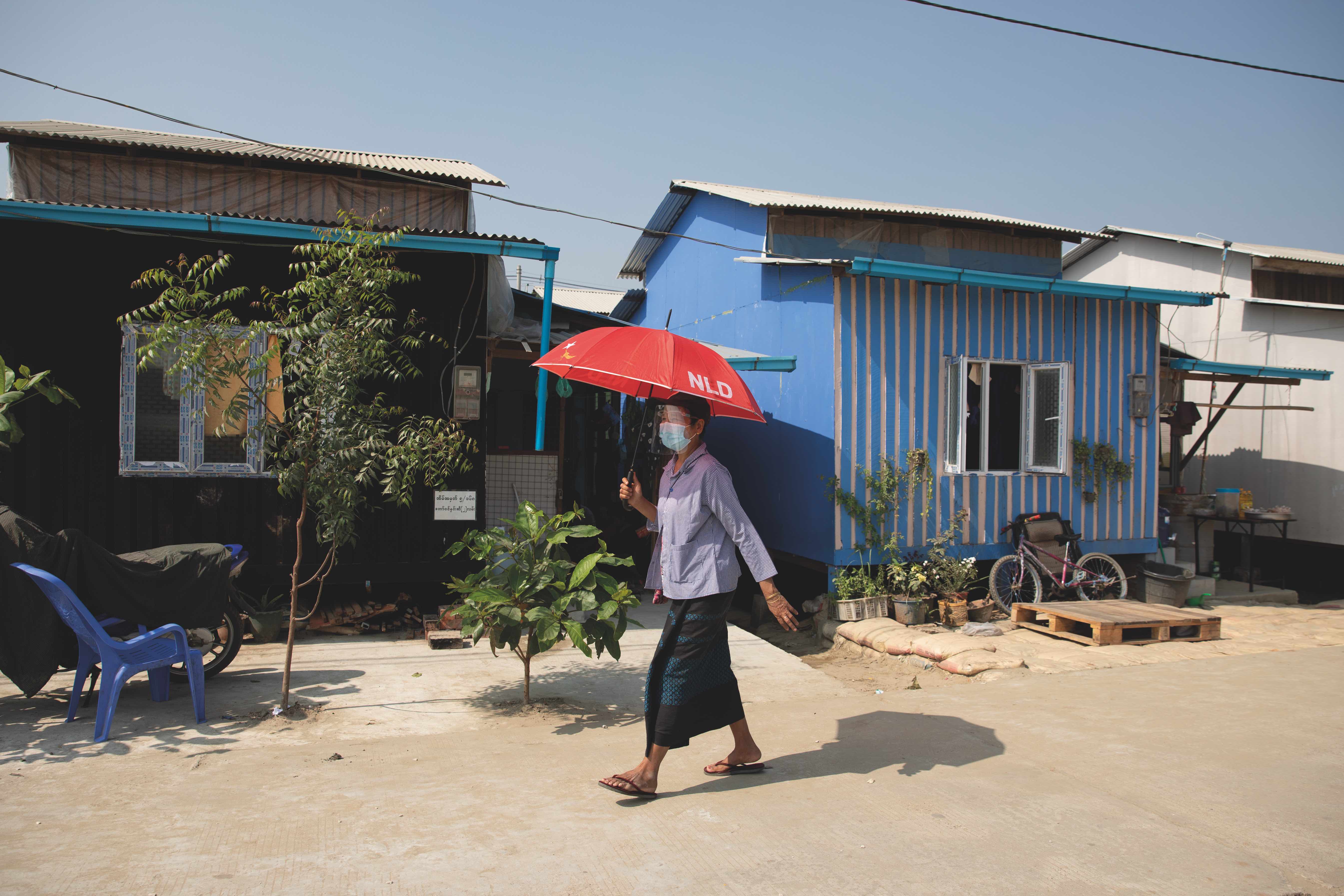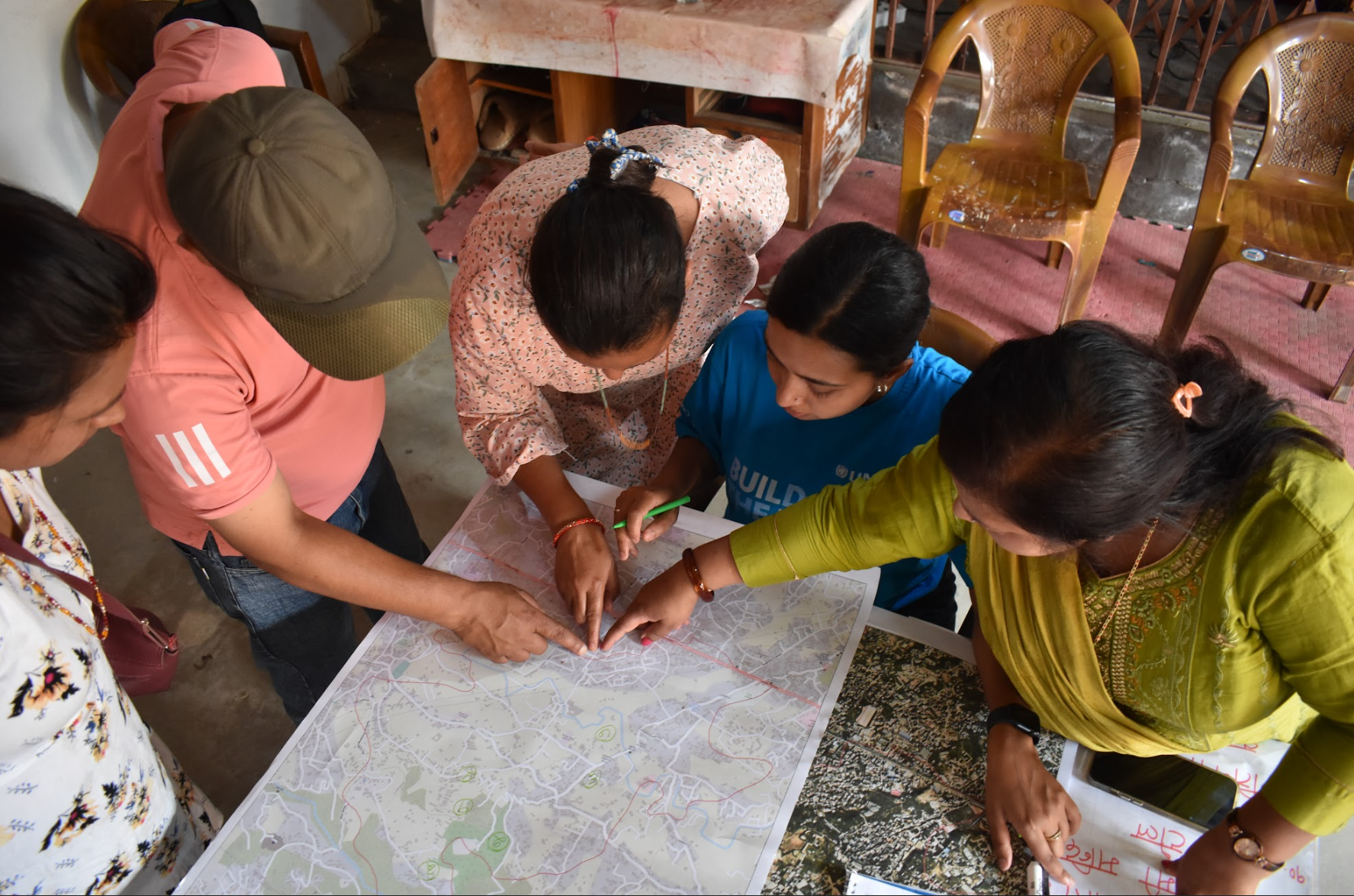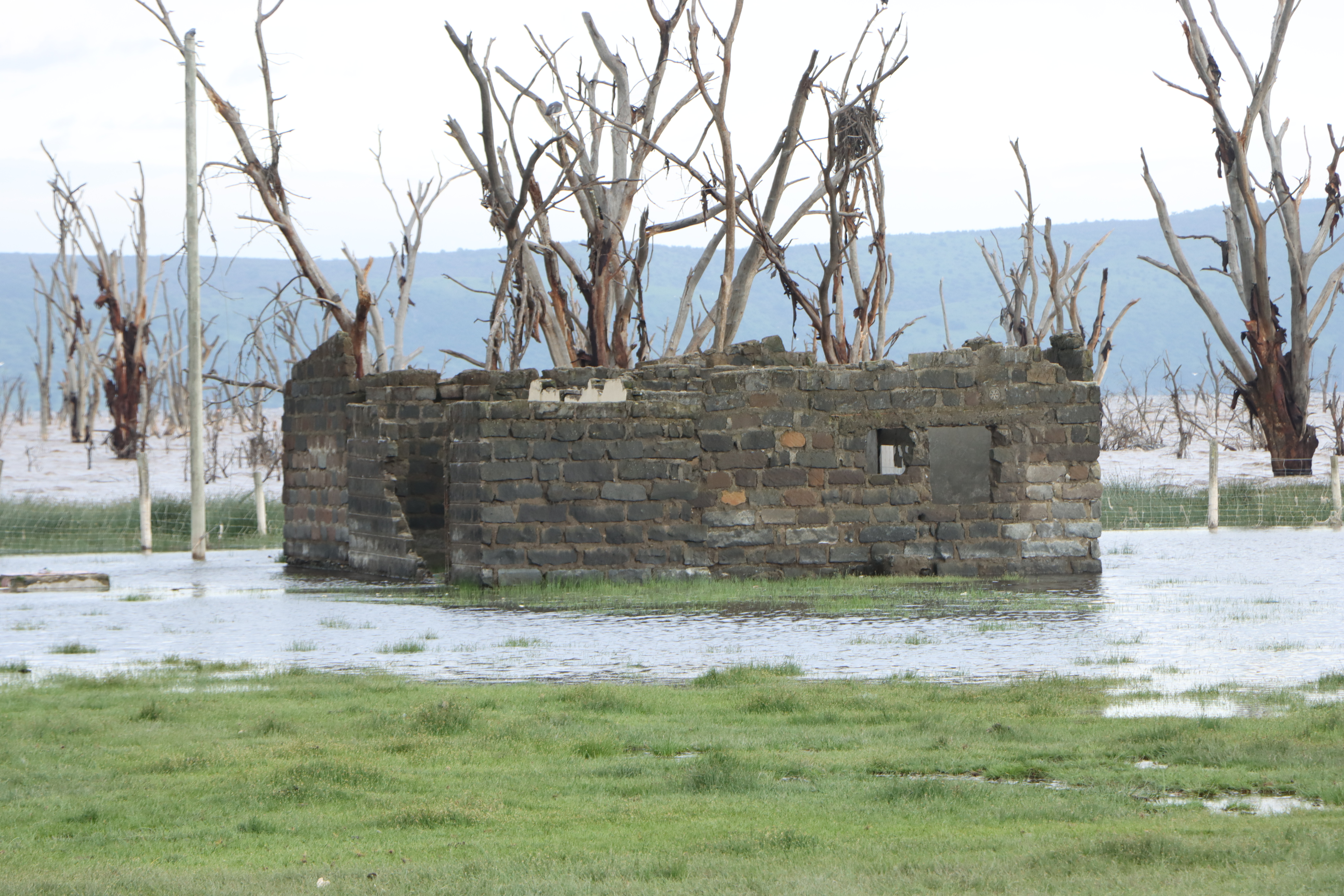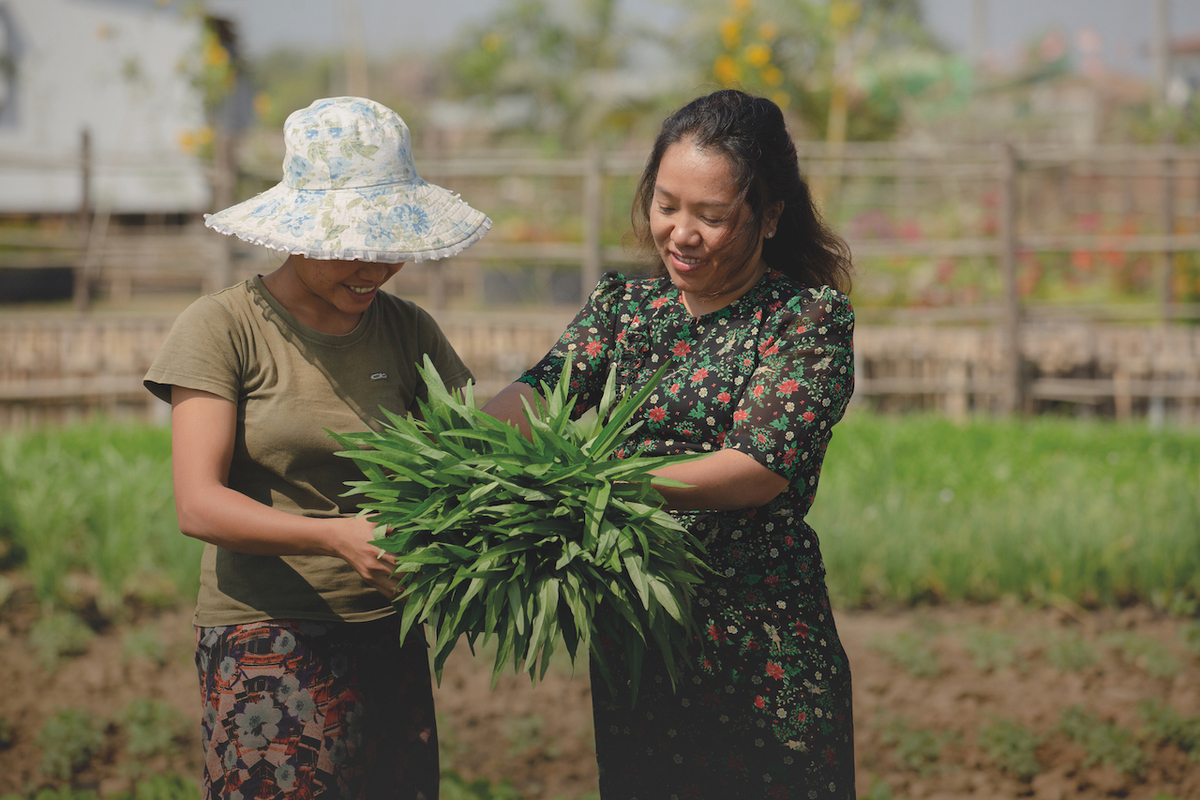
Extreme heat is a growing threat to the health and security of vulnerable people around the world, especially the urban poor, as climate change brings increases in the frequency and intensity of hot weather events.
In urban housing projects and informal settlements in Yangon, Myanmar, the prevalence of barren open spaces, lack of tree cover, increasing traffic, and factory and pollution sources are exacerbating heat levels. Although there are some policies in place that are aimed at climate resilience, poor communities lack knowledge about climate change impacts, as well as possible mitigation measures.
To address this problem, Women for the World (WfW) has initiated a project to both raise awareness and implement local solutions for mitigating heat and increasing climate resilience. The Yangon-based WfW is a local non-governmental organisation working on community development and peacebuilding through collaboration with community groups whose members are largely women.
The project, Community-led Heat Mitigation: Raising Awareness for Heat through People’s Process, is supported by Cities Alliance through the Stronger Partnerships: Local Innovations for New Climate Realities in Cities initiative, in partnership with the Swedish Development Cooperation Agency (Sida) and the German Federal Ministry of Economic Cooperation and Development (BMZ).
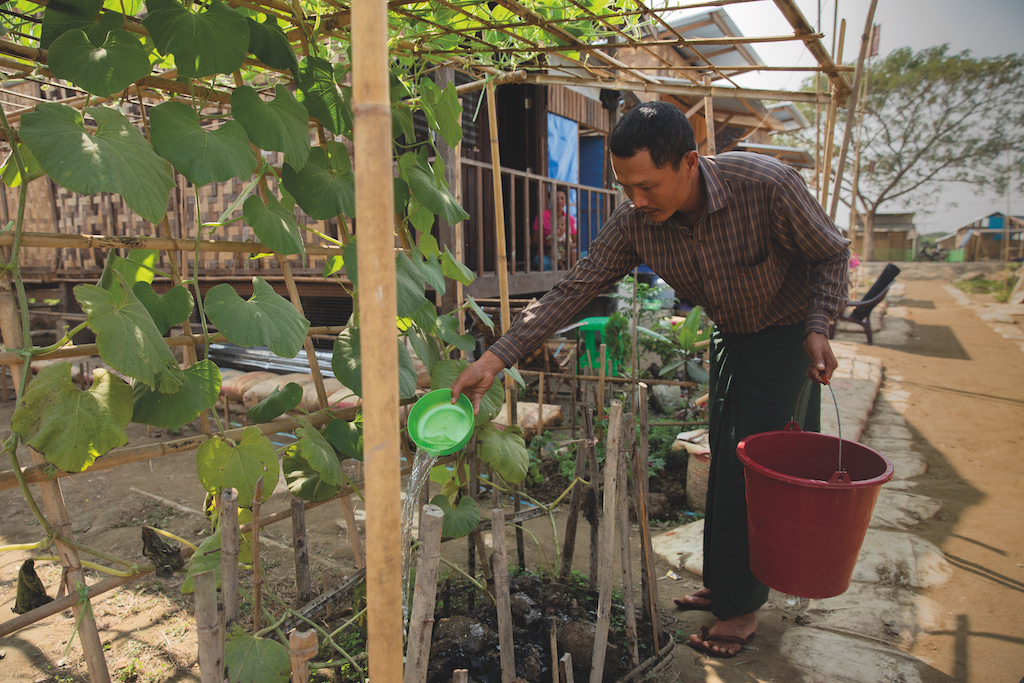
The WfW heat-mitigation project is a climate-related add-on to large, community-driven housing projects for the urban poor that are already underway in Shwepyithar, South Dagon and East Dagon townships in Yangon. As such, an overall aim of the WfW initiative is to encourage a holistic approach towards the important issue of heat mitigation when housing developments are being designed and built. For example, planning for large shade trees and other interventions should be included along with the infrastructure.
Despite the challenges of the COVID-19 pandemic and the ongoing political situation, the WfW project team has made progress toward helping communities identify local interventions for mitigating the effects of extreme heat. During the first stage of the project, team members conducted interviews, workshops, and mobilisation sessions with community members in three housing projects. These sessions were held at a small scale, in compliance with COVID-19 restrictions, but were supported by online-based communications.
The workshops and sessions provided opportunities for community members to offer their ideas for practical, workable interventions at the ground level that are sustainable and affordable. Participants also shared concerns about the potential costs of solutions, a key concern for poor communities and one that should be considered in designing interventions.
As part of engagement and knowledge sharing, the project team also enlisted community members in measuring temperatures in different places to document the uneven impacts of heat. This proved to be an affordable and compelling way to encourage community participation and raise awareness of climate impacts.
In addition, the WfW project has helped all three communities implement local planting and farming initiatives. These have enabled community members to develop technical knowledge of farming, improve their management skills, and gain enthusiasm and confidence while growing extra food for community members during the COVID-19 crisis.
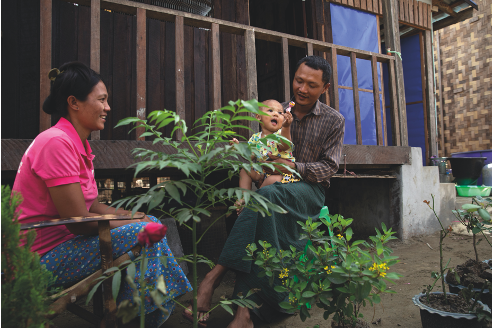
In the next stages, community members, with the support of the WfW team, will develop and present an action plan to stakeholders for the selected heat mitigation measures. Given the current political circumstances, however, project implementation is being affected. Some initial project activities could not proceed as planned, due to the ongoing turmoil, restriction of travel and communications, and are being reviewed.
The project team will nevertheless continue to seek out opportunities to support communities in implementing their chosen heat mitigation actions, to the extent possible under the current circumstances. All steps will be carefully planned and conducted with the safest conditions possible, according to the health and political conditions.
Once the heat-mitigation measures have been implemented and evaluated, the project processes will be documented and published as a guide in several formats. The published guide can then be used to raise awareness on the impacts of extreme heat on poor people and to share knowledge gained on practical local solutions for mitigating heat and building climate resilience.

